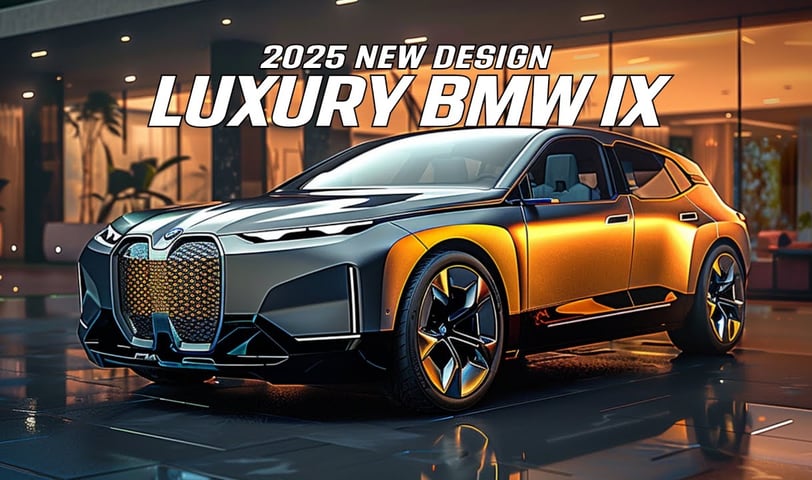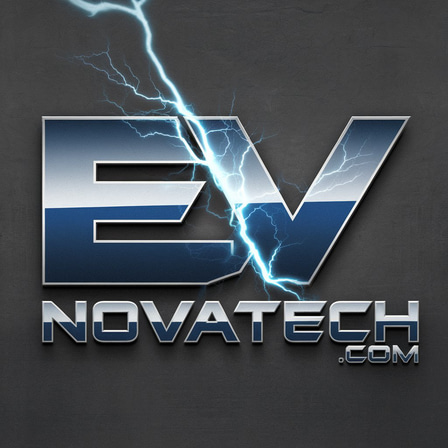Explore BMW ix5 Hydrogen SUV - Future of Mobility
Discover BMW's groundbreaking ix5 hydrogen SUV and learn how hydrogen fuel cell technology may surpass traditional electric vehicles in achieving sustainable mobility. Explore the potential of hydrogen as a clean energy source.
BLOG POSTEVS NEWS
evnovatech.com
12/26/20243 min read


In the ever-evolving landscape of sustainable transportation, BMW has taken a bold step with its iX5 Hydrogen SUV. This innovative vehicle challenges the dominance of traditional electric vehicles (EVs) by introducing hydrogen fuel cell technology into the mainstream. But does it truly offer a viable alternative to EVs? Let's delve into the details.
Understanding the BMW iX5 Hydrogen
The BMW iX5 Hydrogen is a testament to the brand's commitment to exploring diverse avenues for zero-emission mobility. Based on the popular X5 SUV, this model integrates a hydrogen fuel cell system, producing electricity to power its electric motor. The result is an emission-free driving experience with the convenience of rapid refueling.
Key Specifications:
Power Output: The iX5 Hydrogen delivers up to 295 kW (approximately 401 horsepower), ensuring dynamic performance synonymous with BMW's reputation.
Acceleration: It accelerates from 0 to 100 km/h in under 6 seconds, offering swift and responsive handling.
Top Speed: The vehicle achieves a top speed exceeding 180 km/h, suitable for both urban and highway driving.
Range: With a WLTP range of up to 504 km, it competes favorably with many current EVs.
Refueling Time: One of its standout features is the ability to refuel in just 3-4 minutes, a significant advantage over the longer charging times associated with battery EVs.
Driving Experience
Reviewers have noted that the iX5 Hydrogen offers a driving experience comparable to traditional electric vehicles. The immediate torque and silent operation provide a smooth and engaging ride. Its well-balanced chassis and responsive steering contribute to a driving experience that feels both familiar and innovative.
Advantages of Hydrogen Fuel Cell Vehicles (FCEVs)
Rapid Refueling: Hydrogen vehicles can be refueled in a matter of minutes, closely mirroring the convenience of gasoline refueling and surpassing the time required for charging battery EVs.
Extended Range: FCEVs often offer longer driving ranges compared to many battery electric vehicles, reducing the frequency of refueling stops on long journeys.
Performance Consistency: Hydrogen fuel cells maintain consistent performance across a wide range of temperatures, addressing concerns related to battery efficiency in extreme climates.
Reduced Resource Dependency: Hydrogen can be produced from various renewable sources, potentially decreasing reliance on specific raw materials required for battery production.
Challenges and Considerations
While the iX5 Hydrogen showcases impressive capabilities, several challenges must be addressed:
Infrastructure Limitations: The availability of hydrogen refueling stations is currently limited, with only about 100 stations in Germany and 55 public stations in the United States. This sparse infrastructure poses a significant hurdle for widespread adoption.
Production Costs: The manufacturing process for hydrogen fuel cells remains expensive, potentially leading to higher vehicle prices for consumers.
Energy Efficiency: The process of producing, transporting, and converting hydrogen into electricity can be less efficient compared to direct electricity use in battery EVs.
BMW's Vision for Hydrogen Mobility
BMW envisions hydrogen fuel cell technology as a complementary solution alongside battery electric vehicles. The company plans to introduce its first series-production hydrogen vehicle by 2028, developed in collaboration with Toyota. This strategic partnership aims to leverage shared expertise to overcome existing challenges and promote the adoption of hydrogen mobility.
Market Reception and Future Outlook
The iX5 Hydrogen has garnered attention for its potential to diversify the zero-emission vehicle market. However, its success will largely depend on advancements in refueling infrastructure, cost reductions, and consumer acceptance. As governments and industries invest in hydrogen technologies, the coming years will be pivotal in determining the role of FCEVs in the broader automotive landscape.
Conclusion
BMW's iX5 Hydrogen SUV represents a significant milestone in the pursuit of sustainable mobility. By combining the benefits of hydrogen fuel cell technology with the performance and luxury expected from BMW, it offers a glimpse into a future where multiple zero-emission solutions coexist. While challenges remain, the iX5 Hydrogen positions itself as a compelling alternative to traditional electric vehicles, potentially reshaping the journey toward a greener automotive industry.
FAQ
Q: When will the BMW iX5 Hydrogen be available for purchase?
A: BMW plans to launch its first series-production hydrogen vehicle by 2028. The iX5 Hydrogen is currently part of a pilot fleet and is not available for sale.
Q: How does the refueling time of the iX5 Hydrogen compare to charging times for battery EVs?
A: The iX5 Hydrogen can be refueled in approximately 3-4 minutes, significantly faster than the charging times required for most battery electric vehicles.
Q: What is the current state of hydrogen refueling infrastructure?
A: Hydrogen refueling infrastructure is in the early stages of development, with limited availability worldwide. Expansion efforts are underway, but widespread accessibility is not yet achieved.
Q: How does the driving range of the iX5 Hydrogen compare to that of battery electric vehicles?
A: The iX5 Hydrogen offers a WLTP range of up to 504 km, which is competitive with many current battery electric vehicles.
Q: What are the environmental benefits of hydrogen fuel cell vehicles?
A: Hydrogen fuel
